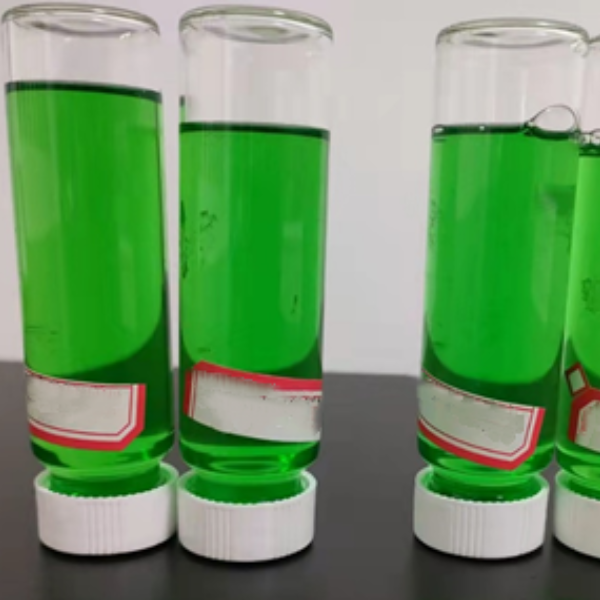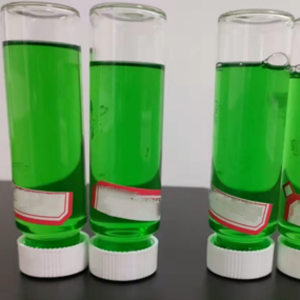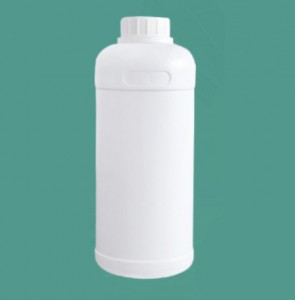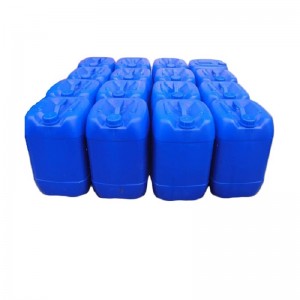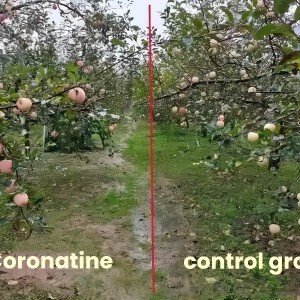Custom Coin Collection Supplies Coronatine Spinner Holder Album Blanks Souvenir Custom
Product Description
| Product | Coronatine |
| Specification | 0.006%SL |
| Function | Growth promoter |
| Application | Grapes, apples, citrus, rice, wheat, corn, cotton and soybeans |
Coronavirin (COR) is a new type of plant growth regulator, which is the first commercialized jasmonic acid molecular signal regulator in the world. Coronatin signaling molecules are involved in the regulation of many physiological processes of plant growth and development, and have broad application prospects in seed dressing resistance to low temperature, resistance to disease and increase yield of rice, wheat, corn, cotton and soybean.
| Function | 1. For fruit crops, it is mainly used to improve the coloring, make the coloring more uniform, and then improve the sugar degree, and the taste will be better, such as grapes, apples, citrus, etc., can be used. 2. For field crops, it can mainly improve the resistance of plants to adversity, such as high temperature, drought, low temperature, salinization, etc., and then increase the yield. |
|
| Application | Rice, wheat | Anti-stress products Wheat and rice are the main grain crops in our country, and their yield and quality are directly related to our food security. Bad weather has caused more and more serious crop production, such as: dry hot air, which causes 10% to 20% of the production reduction. Studies have shown that under the conditions of high temperature and drought stress, treatment with coronatin is conducive to maintaining a high relative water content of wheat leaves, promoting the synthesis of soluble protein, improving the osmotic regulation ability of cells, alleviating the damage of high temperature to plants to a certain extent, and improving their resistance to high temperature. And then increase wheat 1000-grain weight and yield. In practice, the application of coronatin during seed dressing, pre-breaking and full ear stage of rice can effectively increase the yield of rice by 18% compared with the control scheme, and enhance the resistance to adversity and disease, and the quality is also better. |
| Soybean | Seed dressing, increase yield and extract The sensitivity of soybean to light and temperature, especially to low temperature at the seedling stage, not only restricts the production of soybean in high latitude areas, but also affects the cultivation of spring edamame in southern China, which limits the expansion of soybean planting area and the improvement of yield. Current studies have shown that coating or seed dressing with a certain concentration of coronin can improve the emergence rate of soybean under low temperature conditions, and spraying coronin at the seedling stage of soybean can increase soybean yield, which has a profound impact on China’s soybean planting and international soybean trade, and can be used as a strategic reserve technology for China’s food security to cope with the impact of global trade. |
|
| Corn | Increased yield According to the research results of Crop Chemical Control Research Center of China Agricultural University, coronatin treatment of corn can significantly increase the content of soluble sugar and proline in leaves. The stomata of corn seedlings treated with coronatin were more open, so the carbon dioxide entry increased, and the carbon dioxide absorbed by the stomata was fully utilized, so that higher photosynthesis could be maintained, more dry matter could be synthesized, and the stem base and root length of corn seedlings increased. The results showed that corn-treated corn significantly decreased the height of corn plant, increased the maximum diameter of internode under ear, enhanced the internode breaking resistance, and thus enhanced the lodging resistance of corn stalk. At the same time, coronin treatment significantly shortened the length of subear internode, reduced ear height, increased the length of upper ear internode, widened the distance between the leaves on the upper ear, reduced the leaf area per plant, shortened the distance of nutrient and water transport to the above-ground part, increased the cross-sectional area of transport, promoted the increase of yield, and made the population sufficiently light. Favorable conditions were created for reasonable close planting and lodging prevention. The appropriate concentration of coronatin can also increase the number of ears, the number of grains per ear and the 1000-grain weight of corn, and reduce the length of bald tip. |
|
| Cotton | Resistance to increased production Studies have shown that coronin can increase the yield of cotton, enhance the resistance of cotton to disease, promote the growth of cotton, the stem is strong, and promote the early maturation of cotton, so as to achieve the effect of increasing the yield. Low concentration of coronins is conducive to increasing the salt tolerance of cotton, while high concentration of coronins can promote the shedding of leaves, which is conducive to the mechanization of cotton harvest, and its use effect and low cost will also provide broad market application value for cotton production. |
|
Write your message here and send it to us




